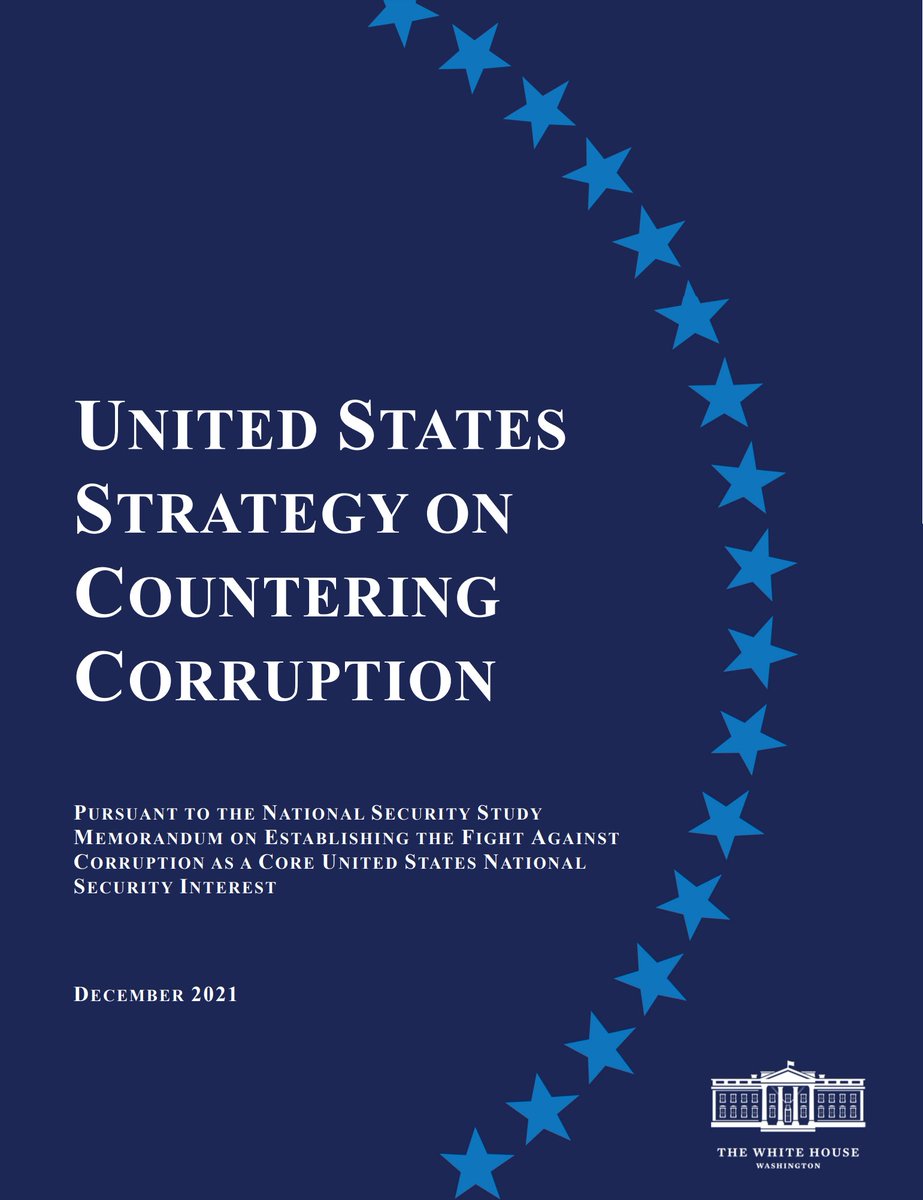
Of the 76 lines of effort announced by the administration today, the single strongest potential move is this one that @TreasuryDepSec just emphasized in his remarks. It's easy to gloss over. A FinCEN advance notice of proposed rulemaking on real estate. But it could be historic. 
https://twitter.com/JoshRudes/status/1467860557676097545

I recently wrote that "In the modern history of the U.S. Treasury Department, no regulatory decision has done more to let dirty money flow with impunity than the 2002 exemption for real estate professionals [from the anti-money laundering rules enacted after 9/11]." 



Today, the White House, FinCEN, and the Treasury Deputy Secretary all made a point of underscoring—at varying levels of detail—that two decades is long enough and so they’re not necessarily limiting their work on real estate transparency to title insurance companies.
This will be the most important policy opening to seize upon in the "year of action" between the two summits for democracy. The ANPRM issued by FinCEN today says they plan to make expanded GTOs for title insurers permanent but they're also open to full AML for the whole industry. 





There's a reason why full AML has never happened for realtors, real estate lawyers, and others. They have powerful lobbies in DC and—unlike banks—a presence in every Congressional district. This is going to be a showdown, but one in which Treasury has all the authority it needs.
• • •
Missing some Tweet in this thread? You can try to
force a refresh













